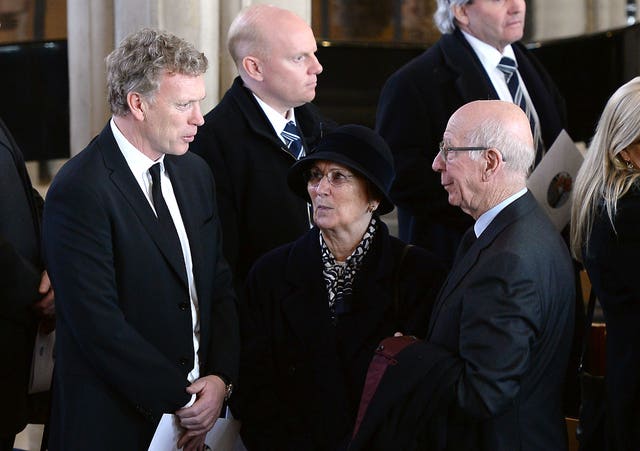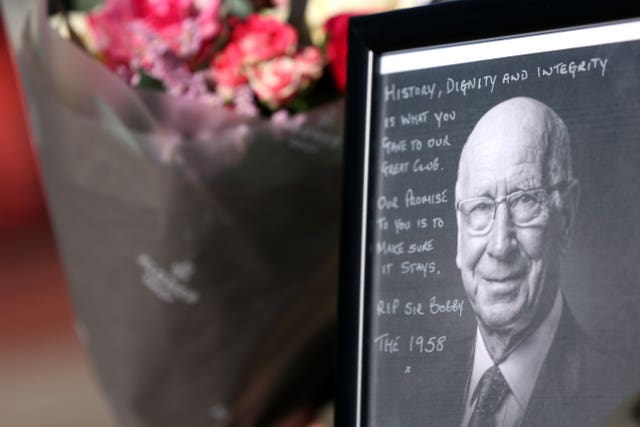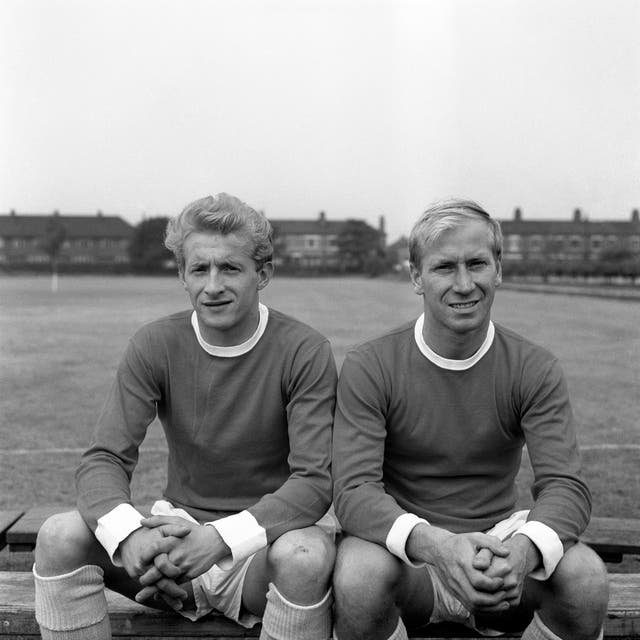Such a good man – David Moyes hails Sir Bobby Charlton help as fans pay tribute
United fans have flocked to Old Trafford following Charlton’s death at the age of 86, with a book of condolence opened at the stadium.

Sir Bobby Charlton stood for everything that was good about Manchester United, according to former manager David Moyes, who will never forget the personal support he was shown during a testing spell at the club.
Fans flocked to Old Trafford on Sunday to pay tribute to former United and England great Charlton following his death aged 86.
A book of condolence was opened at 10am in the International Suite and supporters laid flowers and scarves and left messages for one of the club’s most famous sons.
Charlton won three league titles and one FA Cup at Old Trafford and, after leaving United in 1973 and becoming Preston manager, he returned to Old Trafford 11 years later as a club director.
Moyes took over from Sir Alex Ferguson as Manchester United manager in the summer of 2013, but the former Everton boss left the club after just 10 months, with the team seventh in the Premier League table.

“I’m deeply saddened and I send my condolences to all his family. The biggest thing everybody remembers, more than anything, is how great a man he was. He was such a good man,” Moyes said, quoted on West Ham’s club website.
“For me, it was difficult at times at Manchester United and he was incredibly supportive and always had something to say to me.
“He had a great wife in Lady Norma and even when I lost my job she phoned my wife up, which was really important at the time.

“When you think of the greats who have come through English football, Bobby Charlton would definitely be in there.”
Charlton made his debut for United in 1956 and went on to play 758 matches for the Red Devils, scoring 249 goals. Both were long-standing club records until they were overtaken by Ryan Giggs and Wayne Rooney, respectively. He was knighted for services to football in 1994.
It was announced on Saturday afternoon that he had died peacefully in the early hours of the morning surrounded by his family.

“We had many special and successful years together and he was a joy to play with. He knew where every player was on the pitch and for me that was a dream. I knew, if Bobby had the ball, it would find me, and it did.
“What a striker of the ball he was. He could hit the ball so hard that I knew most keepers didn’t stand a chance. On the rare occasion they did manage to deflect it, it would drop nicely to me to finish it off.
“Along with George (Best), our partnership was sealed. The great part of playing with Bobby and George was that if one of us was having a bad day, the other two knew and that’s what made our relationship special. I am saddened by the news, like all football fans today.”

Tributes were left at Old Trafford this weekend, one which read: “Thank you Sir Bobby, a hero to the worldwide football family,” while a message from fan group The 1958 said: “History, dignity and integrity is what you gave to our great club. Our promise to you is to make sure it stays.”
Manchester United women’s manager Marc Skinner dedicated Sunday’s 5-0 win at Everton to Charlton.
“He changed football in my opinion, especially at my club, so that was for him and for his family,” Skinner said.
Born in Ashington on October 11 1937, Charlton played in the World Cup final alongside his brother Jack, who died aged 85 in 2020, and won 106 caps for England, scoring 49 goals.
Charlton was diagnosed with dementia and his condition was made public in November 2020, two days after his United and England team-mate Nobby Stiles died following his own battle with the illness.
John Stiles, son of Nobby, told BBC Radio Five Live that Charlton was “uncle Bobby” to the family as they were growing up.
“He was just a beautiful man,” Stiles said. “When he used to come around as kids, he would bring Christmas presents and anytime I saw him, he would always ask me how I was doing.
“(He was) just one of those great people and just a pleasure to have somebody like that in your life.
“Bobby would never brag about his achievements. Every time you saw him, the first thing he asked you was about yourself.
“There was no edge on him. He was just a totally humble man.”





